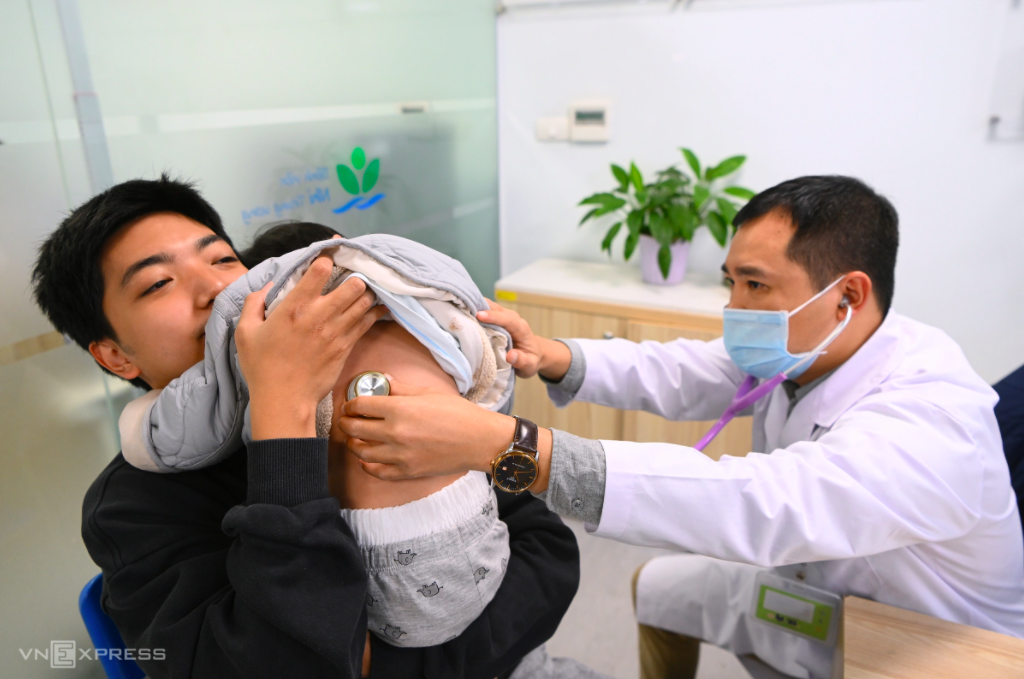The boy, a resident of Hoang Liet ward, developed a fever of 38 degrees Celsius and seizures on 4/7. He is currently being treated at the National Children's Hospital, where tests of his cerebrospinal fluid confirmed the presence of the Japanese encephalitis virus. At this time last year, the city had recorded two cases.
Japanese encephalitis is an acute mosquito-borne disease caused by the Japanese encephalitis virus. The virus is found in domestic animals such as pigs, horses, and birds, which serve as intermediate hosts. When mosquitoes bite infected animals and then bite humans, they transmit the virus. The Culex mosquito, which is most active at dusk, is the primary vector. This mosquito species thrives in the plains and midlands of Vietnam, making it the main transmitter of Japanese encephalitis in the country.
The virus causes encephalitis and meningitis in children, with a mortality rate and sequelae ranging from 25% to 35%. Early detection is often difficult because initial symptoms mimic other infections. These symptoms include fever, headache, nausea, and vomiting, along with general viral symptoms such as fatigue and chills. Severe cases can involve seizures, altered consciousness (including personality changes, screaming, agitation, or unresponsiveness), failure to recognize parents, delirium, and coma. Patients may also experience movement disorders like paralysis of the limbs or one side of the body, stiffness, and twisting.
The disease progresses rapidly. Within three days, or even one, patients can develop seizures and coma, requiring mechanical ventilation. In severe cases, death can occur within one or two days of these severe symptoms appearing. The disease can also cause long-term neurological sequelae, impacting communication and the ability to work, creating a burden on families and society.
 |
A child undergoes a check-up before vaccination at the National Children's Hospital. Photo: Giang Huy |
A child undergoes a check-up before vaccination at the National Children's Hospital. Photo: Giang Huy
The most effective way to prevent Japanese encephalitis is through vaccination. The Japanese encephalitis vaccine is now part of the national expanded immunization program. The Ministry of Health recommends three basic doses: the first dose as soon as possible after the child turns one year old; the second dose one to two weeks after the first; and the third dose a year after the second. Booster shots are then administered every three to four years until the child reaches the age of 15.
Le Nga












